Filter by

A Fragmented Continent: Latin America and the Global Politics of Climate Change
How Latin American countries became leading voices and innovators on addressing climate change -- and what threatens their leadership.OCLC-licensed vendor bibliographic record.
- Edition
- -
- ISBN/ISSN
- 9780262330152
- Collation
- 1 online resource (xxi, 274 pages).
- Series Title
- -
- Call Number
- -
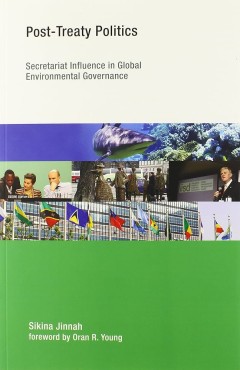
Post-Treaty Politics: Secretariat Influence in Global Environmental Governance
"Foreword by Oran R. Young"--Cover.An argument that secretariats -- the administrative arms of international treaties -- are political actors in their own right.OCLC-licensed vendor bibliographic record.
- Edition
- -
- ISBN/ISSN
- 9780262325356
- Collation
- 1 online resource (xx, 245 pages) :illustrations.
- Series Title
- -
- Call Number
- -

Double Dividend: Environmental Taxes and Fiscal Reform in the United States
"Energy utilization, especially from fossil fuels, creates hidden costs in the form of pollution and environmental damages. The costs are well documented but are hidden in the sense that they occur outside the market, are not reflected in market prices, and are not taken into account by energy users. Double Dividend presents a novel method for designing environmental taxes that correct market p…
- Edition
- -
- ISBN/ISSN
- 9780262318563
- Collation
- 1 online resource (xxxi, 606 pages) :illustrations
- Series Title
- -
- Call Number
- -
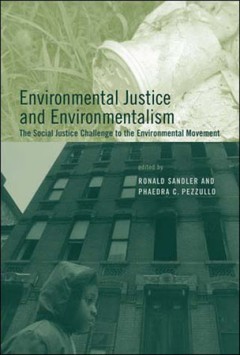
Environmental Justice and Environmentalism: The Social Justice Challenge to t…
Analysis and case studies from interdisciplinary perspectives explore the possibility and desirability of collaboration between the grassroots-oriented environmental justice movement and mainstream environmental organizations.OCLC-licensed vendor bibliographic record.
- Edition
- -
- ISBN/ISSN
- 9780262282918
- Collation
- 1 online resource (xiii, 352 pages) :illustrations.
- Series Title
- -
- Call Number
- -
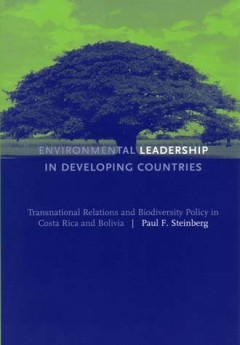
Environmental Leadership in Developing Countries: Transnational Relations and…
The first in-depth study of the politics of environmental policy reform in developing countries, with emphasis on Costa Rica and Bolivia.OCLC-licensed vendor bibliographic record.
- Edition
- -
- ISBN/ISSN
- 9780262284271
- Collation
- 1 online resource (xv, 280 pages) :illustrations, maps.
- Series Title
- -
- Call Number
- -

Environmental Regime Effectiveness: Confronting Theory with Evidence
This book examines why some international environmental regimes succeed while others fail. Confronting theory with evidence, and combining qualitative and quantitative analysis, it compares fourteen case studies of international regimes. It considers what effectiveness in a regime would look like, what factors might contribute to effectiveness, and how to measure the variables. It determines th…
- Edition
- -
- ISBN/ISSN
- 9780262279796
- Collation
- 1 online resource (xxii, 508 pages) :illustrations, maps.
- Series Title
- -
- Call Number
- -
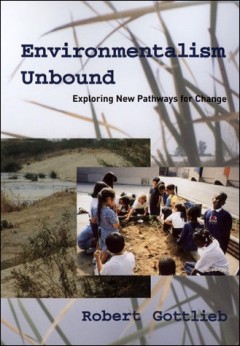
Environmentalism Unbound: Exploring New Pathways for Change
A call for a broadened environmental movement that addresses issues of everyday life. In Environmentalism Unbound , Robert Gottlieb proposes a new strategy for social and environmental change that involves reframing and linking the movements for environmental justice and pollution prevention. According to Gottlieb, the environmental movement's narrow conception of environment has isolated it fr…
- Edition
- -
- ISBN/ISSN
- 9780262274111
- Collation
- 1 online resource (408 pages).
- Series Title
- -
- Call Number
- -

Exporting Environmentalism: U.S. Multinational Chemical Corporations in Brazi…
A great deal of research has focused on the role of governments, nongovernmental organizations, and advocacy groups in promoting environmental ideologies. Researchers and activists have generally assumed antienvironmental and antiregulatory stances on the part of corporations. Exporting Environmentalism is the first book to examine industry's transnational promotion of environmental ideas and p…
- Edition
- -
- ISBN/ISSN
- 9780262273541
- Collation
- 1 online resource (xvi, 282 pages).
- Series Title
- -
- Call Number
- -
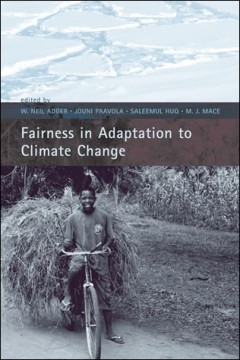
Fairness in adaptation to climate change
Interdisciplinary scientific and policy analysis on the challenges of ensuring that adaptation to global climate change does not place unfair burdens on already vulnerable populations.OCLC-licensed vendor bibliographic record.
- Edition
- -
- ISBN/ISSN
- 9780262266819
- Collation
- 1 online resource (xvi, 319 pages) :illustrations
- Series Title
- -
- Call Number
- -
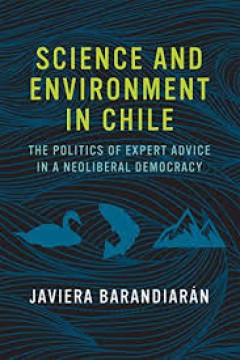
Science and environment in Chile :the politics of expert advice in a neoliber…
The politics of scientific advice across four environmental conflicts in Chile, when the state acted as a "neutral broker" rather than protecting the common good. In Science and Environment in Chile , Javiera Barandiar?n examines the consequences for environmental governance when the state lacks the capacity to produce an authoritative body of knowledge. Focusing on the experience of Chile afte…
- Edition
- -
- ISBN/ISSN
- 9780262347419
- Collation
- 1 online resource (284 pages).
- Series Title
- -
- Call Number
- -
 Computer Science, Information & General Works
Computer Science, Information & General Works  Philosophy & Psychology
Philosophy & Psychology  Religion
Religion  Social Sciences
Social Sciences  Language
Language  Pure Science
Pure Science  Applied Sciences
Applied Sciences  Art & Recreation
Art & Recreation  Literature
Literature  History & Geography
History & Geography